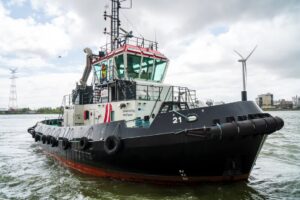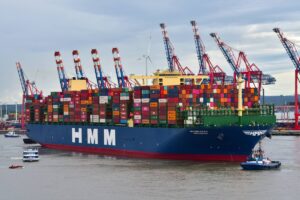Canada’s West Coast ports are gearing up for widespread strikes that are set to inflict yet another blow on an already hampered global supply chain.
According to CNBC, on 28 June ILWU Canada accused the British Columbia Maritime Employers Association (BCMEA) of demanding major concessions and that its goal is to safeguard jobs.
ILWU Canada President, Rob Ashton, said: “Their only objective is to take away rights and conditions from longshore workers after having gorged themselves on record profits during the pandemic.
“The BCMEA rebutted these claims, reported CNBC, stating that it had put forth multiple proposals and positions “with the objective of making progress and achieving a fair deal at the table”.
BCMEA has reiterated its commitment to re-engage with the ILWU through the federal mediation process.
“That includes voluntarily entering a mediation-arbitration process shaped by the parties that encourages continued dialogue and negotiations and only, if necessary, provides for a binding outcome via interest arbitration,” stated BCMEA.
“So far, ILWU Canada has declined this binding mediation and arbitration proposal.”
CNBC has reported that another round of discussions is scheduled for 29 June.
READ: Biden Administration quells pressure to mediate West Coast labour negotiations
Canada’s West Coast ports handle approximately $225 billion worth of cargo annually, reported CNBC.
The Port of Vancouver is set to suffer the brunt of these strikes, with 90 per cent of the cargo handled through the port planned for domestic trade.
Jon Gold, Vice President of Supply Chain and Customs Policy at the National Retail Federation, told CNBC: “We are concerned about a potential strike and its impact at the Ports of Vancouver and Prince Rupert.
“Retailers have diversified their supply chains to include these critical ports in Canada. A strike would lead to delays and disruption as we enter the peak shipping season,” Gold added.
Gold urges both parties to continue negotiations until a deal has been reached to avoid such catastrophic supply chain consequences.
READ: Panama Canal postpones depth restrictions following rainfall
US trade may also be impacted by the forthcoming strikes.
According to CNBC, 15 per cent of cargo moving through the Port of Vancouver is destined to or from the US.
Additionally, roughly 2 per cent of US international laden imports arriving at West Coast ports move through the Canadian port annually.
CNBC also noted that roughly two-thirds of containerised import volumes going through the Port of Prince Rupert is set for the US by rail.
The ILWU Canada’s incoming strikes have not been the only stoppages to threaten the global supply chain in recent times.
Additionally, US West Coast ports have been plagued with strikes for over a year which have indelibly impacted trade in the US.
A tentative labour deal was finally reached among the relevant parties in the US West Coast, however, this may still take several months to ratify.









